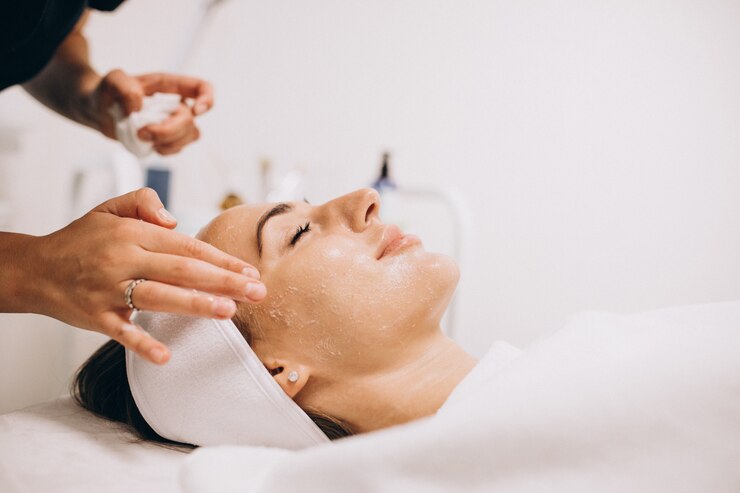Hydrating Treatments

Hydrating treatments are designed to replenish moisture in the skin, which is essential for maintaining a healthy, plump, and glowing complexion. Proper hydration helps prevent dryness, irritation, and premature aging, as well as enhances the skin’s overall appearance.
Here are some popular hydrating treatments you can incorporate into your skincare routine:
1. Hydrating Face Masks
- Sheet Masks: These are soaked in hydrating serums and provide instant moisture to the skin. Look for masks with ingredients like hyaluronic acid, aloe vera, or glycerin.
- Overnight Hydrating Masks: These masks are applied before bed and left on overnight. They often contain ingredients like ceramides, peptides, or oils that deeply moisturize and help repair the skin’s barrier.
2. Hyaluronic Acid
- Serums & Creams: Hyaluronic acid is a powerhouse hydrator that attracts water to the skin, keeping it moisturized and plump. It can be used in serums, creams, or even as a standalone treatment.
- Multi-molecular Hyaluronic Acid: Some products use different molecular weights of hyaluronic acid to hydrate the skin at various levels (surface and deeper layers).
3. Moisturizers
- Choose a moisturizer that suits your skin type (gel-based for oily skin, cream-based for dry skin) and contains hydrating ingredients like glycerin, ceramides, squalane, and aloe vera.
- Oil-based Moisturizers: For those with extremely dry skin, oil-based moisturizers (such as argan oil or rosehip oil) can be very effective at locking in moisture.
4. Hydrating Toners or Essences
- Toners: These are applied after cleansing to restore the skin’s pH balance and add an extra layer of hydration. Look for toners with ingredients like rose water, aloe, and glycerin.
- Essences: Lighter than serums but more concentrated than toners, essences hydrate the skin and prepare it for better absorption of subsequent treatments.
5. Facial Mists
- Facial mists are convenient for quick hydration throughout the day. They often contain ingredients like aloe vera, glycerin, or green tea extract that soothe and moisturize the skin.
6. Hydrating Oils
- Natural oils like jojoba oil, argan oil, or squalane can help hydrate and nourish the skin, especially for those with dry or combination skin. These oils can be used as part of your skincare routine or layered over moisturizers for extra hydration.
7. Exfoliation (Hydrating Exfoliants)
- Gentle exfoliation with chemical exfoliants like lactic acid (an AHA) can help slough off dead skin cells while also hydrating the skin. Lactic acid, for instance, helps increase moisture levels in the skin while providing exfoliation.
8. Hydrating Treatments at the Spa (Facial Treatments)
- HydraFacial: A professional facial that deeply cleanses, exfoliates, and hydrates the skin using specialized machines and serums. It’s great for immediate hydration and plumpness.
- Microdermabrasion & Hydration: Microdermabrasion removes dead skin cells, and when followed by a hydrating serum, it can give you refreshed and moisturized skin.
9. DIY Hydrating Treatments
- Aloe Vera Gel: Aloe vera is naturally hydrating and soothing, making it a great option for sensitive skin. It can be applied directly to the skin or added to a homemade mask.
- Honey and Yogurt Mask: Honey is a natural humectant that draws moisture into the skin, and yogurt is rich in probiotics and moisture-locking properties. This mask can hydrate and calm the skin.
- Avocado Mask: Avocado is packed with healthy fats that can deeply moisturize dry skin. You can mash avocado and mix it with honey or olive oil for an added boost.
10. Humidifiers
- If you live in a dry climate or spend time in air-conditioned spaces, using a humidifier can help add moisture to the air, which in turn helps keep your skin hydrated.
Hydration Tips:
- Drink plenty of water: Staying hydrated from the inside out is just as important as using topical treatments.
- Layer your products: If you use multiple hydrating treatments, apply them in order from thinnest to thickest (e.g., serum, followed by moisturizer).
- Avoid hot showers: Hot water can strip the skin of natural oils, so opt for lukewarm water when washing your face or body.
